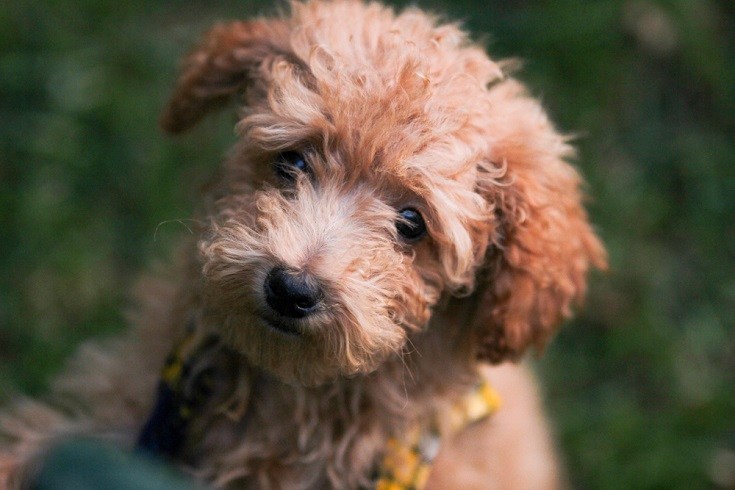As a tiny yet mighty combination of a Yorkshire terrier and toy poodle, the Yorkipoo is one of the cutest and most common designer dogs. If you’ve fallen madly in love with these adorable dogs but are also stricken with allergies, are you doomed to forever pine over Yorkipoo photos on your Instagram feed only? Is the Yorkipoo hypoallergenic?
While no dog is truly hypoallergenic, the good news is that some breeds are less likely to trigger allergy symptoms than others, and that includes the Yorkipoo. We’ll discuss why the Yorkipoo is a good choice for allergy sufferers in this article. We’ll also give you a few tips to help further decrease any potential allergic reaction to these pups.
Why There’s No Such Thing as a Hypoallergenic Dog
To understand why there’s no such thing as a hypoallergenic dog, you first need to understand what causes pet allergies.
Allergic reactions occur when the presence of certain substances triggers a person’s immune system, in this case, proteins. Most people allergic to dogs react to proteins present in the pup’s dander and saliva.
Dander comes from the dog’s skin and coat, meaning it’s present even in hairless breeds. And, of course, all dogs have saliva. With this knowledge, you can see how no dog could be considered entirely hypoallergenic.
Why Yorkipoos Are a Good Fit for Allergy Sufferers
If all dogs produce dander and saliva, why are some breeds like the Yorkipoo less likely to make people sneeze?
Well, one reason is that some dogs naturally produce less dander than others. However, the primary reason is that this breed doesn’t shed much.
Contrary to what many believe, it’s not usually the dog’s hair that triggers an allergic reaction but saliva left on the coat when the pup licks itself. The allergens are then spread throughout the environment when the fur is shed.
Dogs that don’t shed as much, like the Yorkipoo, release fewer potential allergens into your house. Because of this, they are less likely to produce a reaction.
Because the Yorkipoo is a crossbreed dog, there’s some uncertainty as to what traits of each parent breed they will end up with. However, poodles and Yorkshire terriers are considered allergy-friendly breeds, and the chances are high that their offspring would be as well.

Tips for Reducing Allergic Reactions
If you want to reduce the potential further that your Yorkipoo will trigger an allergic reaction, here are a few tips.
First, designate one or more parts of your house off-limits to your dog, ideally your bedroom. This allows you to escape the allergens if necessary, especially when sleeping. You could also consider investing in a portable air filtration system.
Keep your house clean by vacuuming and frequently dusting to reduce the amount of dander and allergens. Change out your household air filters and consider upgrading those as well to help filter allergens in the air.
The Yorkipoo’s coat typically needs frequent brushing to keep it tangle-free. This task can also help keep dander and loose hair to a minimum. Bathing your Yorkipoo will also minimize allergens.
Final Thoughts
Remember that an allergy sufferer won’t always have a consistent reaction to every dog. For example, you might be able to visit your friend’s Yorkipoo with no issues but start sneezing right away when you bring your own home. To minimize this danger, try to meet and spend at least a little time with your potential new dog before you commit to adopting or buying. You can also discuss your allergies with your doctor to learn about available remedies.
Featured Image Credit: Shutterstock














